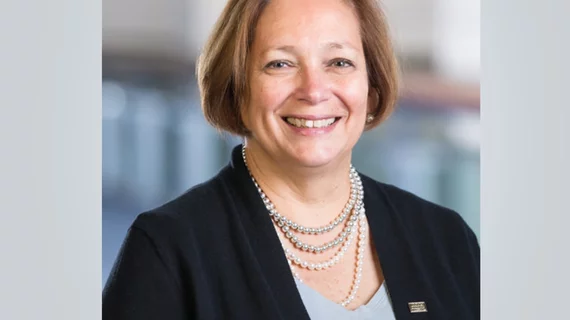Valerie P. Jackson named new RSNA president
Valerie P. Jackson, MD, has been named the new president of the RSNA Board of Directors.
The announcement was made Wednesday, Nov. 28, at RSNA 2018 in Chicago. Jackson will replace Vijay M. Rao, MD, as the head of the organization.
Jackson, professor and chair of the department of radiology and imaging services at Indiana University School of Medicine, has been a member of RSNA since 1982. Prior to serving as president-elect this past year, Jackson joined the RSNA Board of Directors in 2012.
She also served as first vice president from 2008 to 2009 and provided her expertise as chair of both the Refresher Course Committee and the Breast Imaging Subcommittee of the Scientific Program Committee. She was a committee member of the RSNA Research & Education (R&E) Foundation and the R&E Foundation Board of Trustees.
"The RSNA annual meeting is the leading forum for the introduction of medical imaging technologies, and the increasingly international attendance at the meeting allows people from all over the world to share knowledge and ideas,” Jackson said in a prepared statement."RSNA continues to grow as a world leader in informatics and has become a critical convener for artificial intelligence, machine learning and deep learning. While the focus of my career has been predominantly in education, I plan to work hard to continue to advance RSNA in all of these areas."

